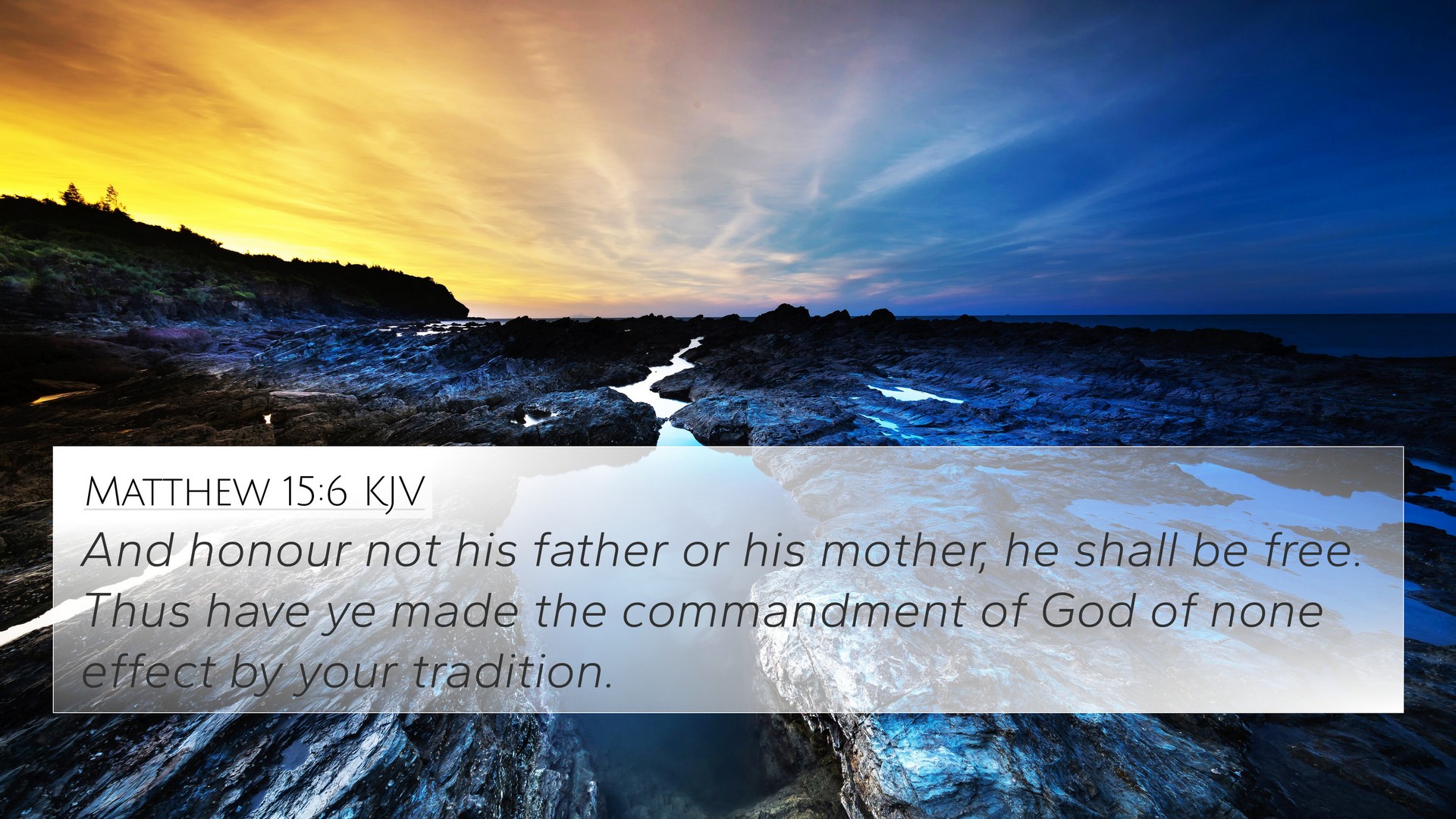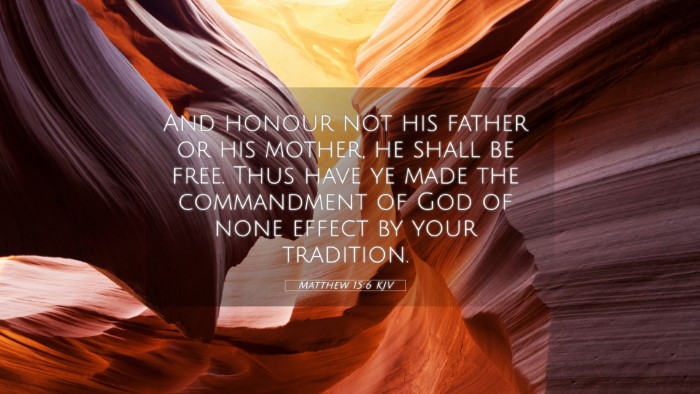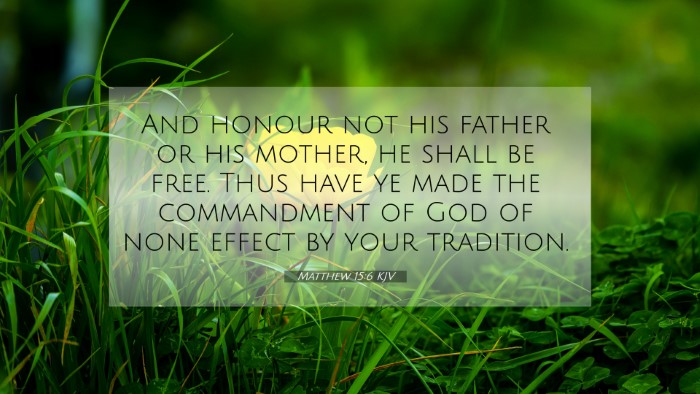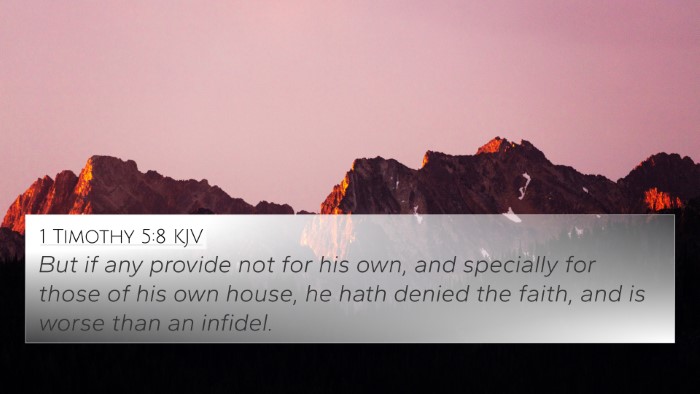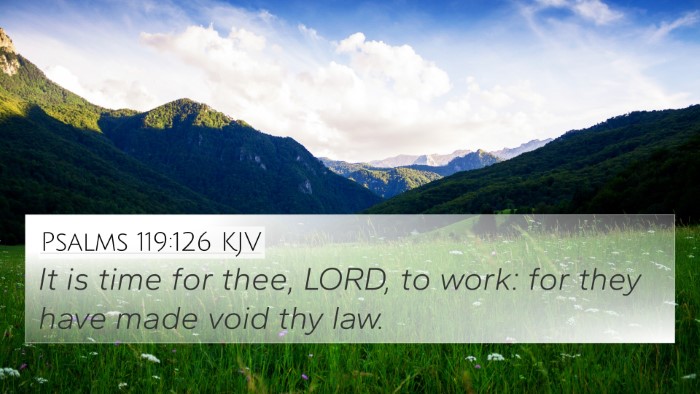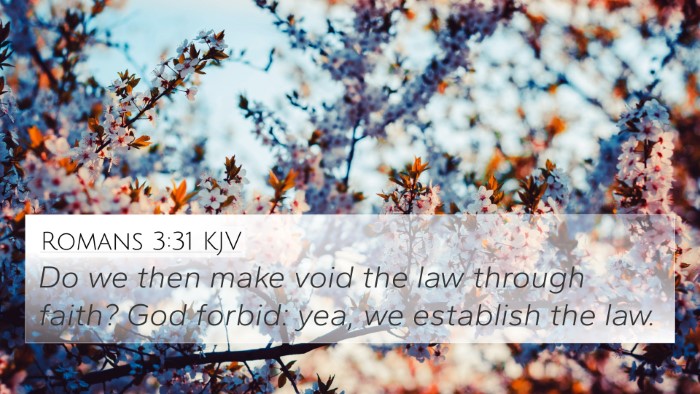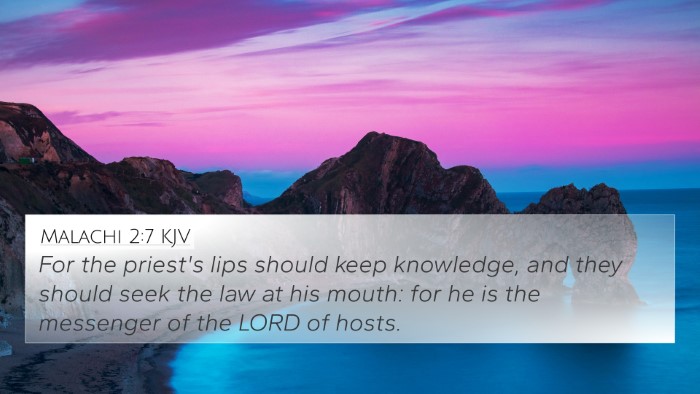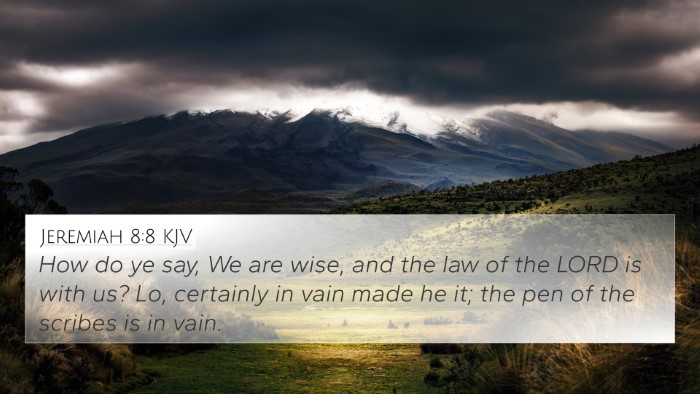Understanding Matthew 15:6
Matthew 15:6 states, "And honor not his father or his mother, he shall be free. Thus have ye made the commandment of God of none effect by your tradition." This verse addresses the conflict between human traditions and divine commandments, particularly concerning the honor due to parents.
Verse Explanation
This verse highlights how the Pharisees had set up traditions that could supersede the commandments of God, which fundamentally compromised the authority of Scripture. Since Jesus was often in conflict with the religious leaders over their interpretations and practices, this passage serves to illustrate His call to return to true obedience rather than mere traditional observance.
Insights from Commentaries
-
Matthew Henry:
Henry emphasizes that this verse uncovers the hypocrisy of the Pharisees who allowed their traditions to negate the clear commands of God. He argues that they misinterpret the law by creating loopholes that permit disobedience, especially regarding the care of one’s parents.
-
Albert Barnes:
Barnes remarks on the implications of what it means to honor one’s parents and how the traditions lead to neglect of filial responsibilities. He points out that their interpretation effectively nullified the command because it provided an escape route from the obligation to honor one's parents.
-
Adam Clarke:
Clarke notes the contrast between God’s commandment and the traditions of men. He underscores the seriousness of how traditions can replace or undermine God’s moral laws and calls for a return to fundamental biblical principles.
Bible Verse Cross-References
Matthew 15:6 connects with several other passages that illustrate similar themes:
- Exodus 20:12: "Honor your father and your mother, that your days may be long in the land which the LORD your God gives you."
- Mark 7:10-13: A parallel account highlighting the same theme of tradition nullifying God's command.
- Colossians 3:20: "Children, obey your parents in everything, for this pleases the Lord."
- Luke 14:26: Discussing the cost of discipleship, considering the priority of allegiance to God over familial ties.
- 1 Timothy 5:4: Paul instructs on honoring parents and family duties to legitimize support for relatives.
- Matthew 5:17-19: Jesus affirms that He has not come to abolish the Law or the Prophets but to fulfill them, hence upholding the significance of commandments.
- Proverbs 30:17: A stark warning about the judgment awaiting those who dishonor their parents.
Thematic Connections
The themes revolving around the respect for parental authority and the dangers of elevating human traditions above divine commandments resonate throughout Scripture. It illustrates the importance of maintaining a clear delineation between God’s laws and traditional practices that may distort the true intent of His commandments.
Applying Cross-Referencing Strategies
To further enrich understanding through cross-referencing, one can use tools like a Bible concordance or a comprehensive Bible cross-reference guide. These can help locate further verses and find connections between them effectively. Here are ways to utilize these tools:
- How to find cross-references in the Bible: Many Bibles have a built-in cross-reference system that can be beneficial for deeper study.
- Identifying connections: Comparing Old and New Testament verses provides insights into continuity in God's message.
- Cross-referencing Bible study methods: One can create thematic chains linking passages that reinforce or highlight similar teachings.
Conclusion: Interpreting Biblical Themes Through Cross-References
Understanding Matthew 15:6 within its broader scriptural context reinforces the importance of adhering to God's commandments. By studying these connections, one can gain deeper insights on the implications of honoring God versus following human traditions. This principle is timeless and relevant within our contemporary religious practices, emphasizing the necessity for believers to be guided primarily by Scripture.
